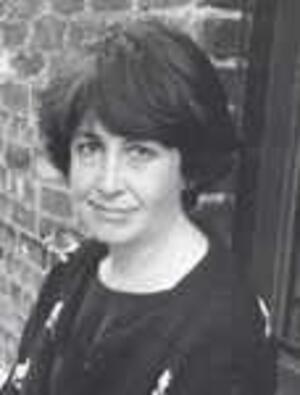Susan Brownmiller
As a child I was sent to the East Midwood Jewish Center on Ocean Avenue two afternoons a week for lessons in Hebrew and Jewish history. Biblical history, Palestine’s history, Eastern European history. The High Holy Days and all the other holidays. There was a lot to cover, and it all got sort of mishmashed in my brain except for one thread: a helluva lot of people over the centuries seemed to want to harm the Jewish people.
Jewish Brooklyn had been swept into a Zionist fervor in the wake of World War II and the Holocaust. In 1948, when Israel was declared a Jewish state, our Hebrew teachers instantly switched us from Yiddish-inflected Ashkenazi to the fluttery t-t-t and ah-ah-ah of the Sephardic pronunciation. With misty eyes and strong, quavering voices, they talked about emigrating to “Eretz” to work the land. They encouraged us to join a youth group. Wow, the idea was thrilling. I wanted to work the land, I wanted to be part of this brave, new movement. I wanted to help. I went to the Ocean Avenue synagogue on Saturday mornings and chanted the prayers.
My parents grew somewhat alarmed by my sudden intensity. My aunts and uncles started calling me “the Rebbetzin.” “What’s a ‘rebbetzin’?” I asked my mother, thinking it must mean a serious, dedicated, intelligent person. “A rebbetzin is a rabbi’s wife,” she laughed.
What a deflating blow to my ego and ambitions! A rabbi was a revered personage; a rabbi’s wife served cake and tea and preened in his reflected glory. My instinctive feminism (no lessons needed) could not be reconciled with this severe limitation on my life’s path. The sly mockery had its effect. So much for Judaism, so much for religion – I became an atheist, a secularist, and never looked back.
Somewhere in Against Our Will, my book on rape (1975), I mention quietly that I am Jewish from Brooklyn, but I have never stressed my Jewish heritage in my writing. Yet the heritage is still with me, and I can argue that my chosen path – to fight against physical harm, specifically the terror of violence against women – had its origins in what I had learned in Hebrew School about the pogroms and the Holocaust.
I have to say that I was surprised, and ultimately heartened, during the heady days of Women’s Liberation to see the emergence of committed, observant, Jewish feminists who took on the task of creating equality within organized religion. This wasn’t a project I had given any thought to, and it remains an uphill struggle, as do all feminist issues. But one thing became certain: these women weren’t going to settle for being rebbetzins.
When Susan Brownmiller left Cornell University, she was determined to be a Broadway actress. Quite accidentally, she started working in editorial jobs for magazines. Brownmiller was profoundly influenced by the Southern sit-in movement to end lunch counter segregation that began in February 1960. She joined CORE, organized a picket line in front of a New York Woolworth's, and became a political activist. In 1964, while working as a researcher at Newsweek, she was among 1000 white volunteers who joined Freedom Summer in Mississippi. In 1968, Brownmiller was working as a television newswriter at ABC and marching against the war in Vietnam, when the Women's Liberation Movement erupted. Brownmiller’s book on the history of the movement, In Our Time: Memoir of a Revolution, details the story of feminism and her intimate involvement with it, particularly in working to end violence against women. Her groundbreaking book, Against Our Will, defined rape as a serious social problem of violence against women.
More on Susan Brownmiller
- This Week in History: "Against Our Will: Men, Women and Rape" conquers the "Washington Post"
- This Week in History: "Against Our Will" author Susan Brownmiller is born
- Blog: 50 Most Influential Progressives of the 20th Century - Who else?
- Blog: Glitz and Grit
- Blog: Blaming Victims




